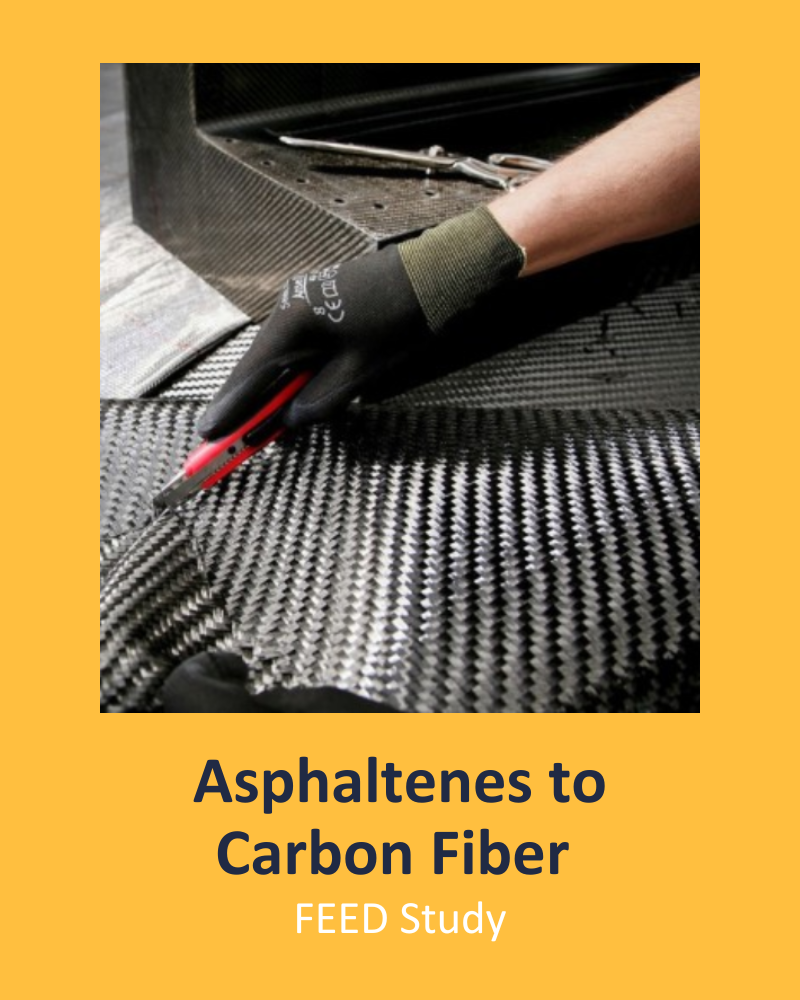Carbon fibers are highly desirable in applications that require a high strength to weight ratio, but widespread utilization is limited by their high cost. Traditional feedstocks are either polyacrylonitrile (PAN) or specially formulated petroleum pitches that have trade-offs in either performance or cost and are widely considered to be not cost-effective enough for widespread adoption. Asphaltenes, currently the least desirable portion of heavy crude, are thought to be uniquely suited for carbon fiber production due to their high carbon content and very high molecular weight which better aligns the atoms in the fiber. The oil sands producer reached out to Exergy to develop a theoretical process based on preliminary lab results and design the pilot line with an end deliverable of an actionable FEED study.
Our team started by reviewing the available research results presented by different parties that were working in partnership with the oil sands producer. While the carbonization and more traditional steps of the production process are relatively well known, there was uncertainty regarding the direct usability of the asphaltenes and if pre-treatment steps were required. Different pre-treatment processes were proposed, each with their own pros and cons, and since each would need to be explored further, the choice was made to design the pilot line to be highly interchangeable, with each processing step being swappable in and out, as well as the sequence.
The Exergy team sized and costed each piece of equipment to come up with a ~$15M Class 3 cost-estimate for the combined pre-treatment processing equipment producing green fibers, and the stabilization/carbonization/surface treatment line producing spun carbon fibers. The study was well received and remains actionable for when market conditions support further exploration into asphaltene utilization.
At Exergy we excel at early-stage development, addressing uncertainty with cost-effective mitigation strategies that provide operational flexibility. Reach out to learn how we can assist in your FEED studies and turn ideas into actionable results.
